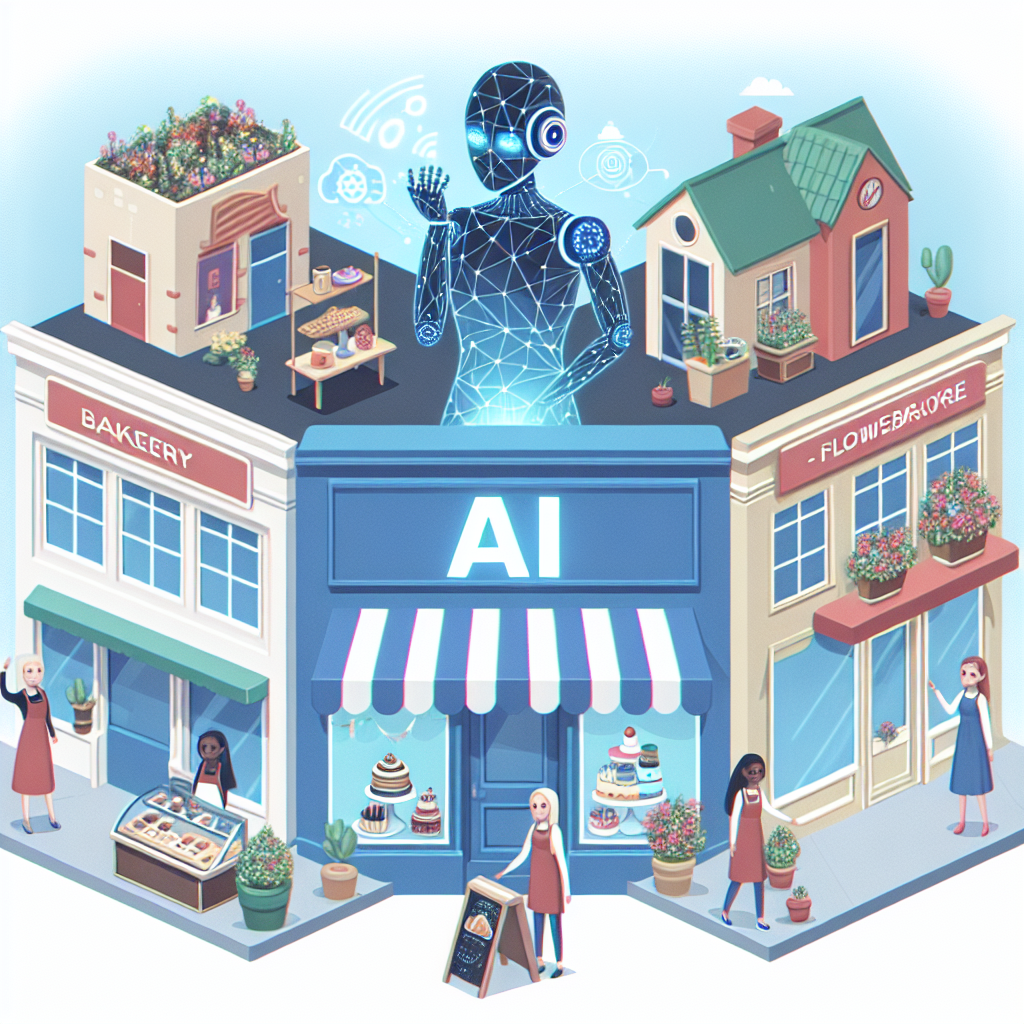The Democratization of AI: Opportunities for Small Businesses
Artificial intelligence (AI) has rapidly become one of the most transformative technologies of the 21st century, with the potential to revolutionize industries across the board. From healthcare to finance, manufacturing to marketing, AI is being used to streamline processes, improve decision-making, and drive innovation. However, for many small businesses, the idea of implementing AI can seem daunting, with concerns about cost, complexity, and expertise often standing in the way.
But the landscape of AI is changing, as the democratization of AI technologies is making them more accessible and affordable for businesses of all sizes. In this article, we will explore the opportunities that AI presents for small businesses, and how they can leverage this technology to drive growth and competitiveness.
What is the Democratization of AI?
The democratization of AI refers to the trend of making AI technologies and tools more accessible to a wider range of users. Traditionally, AI has been the domain of large tech companies and research institutions, with access limited to those with specialized knowledge and resources. However, advances in AI algorithms, cloud computing, and automation have made it possible for smaller businesses to harness the power of AI without the need for extensive technical expertise or a large budget.
One of the key drivers of the democratization of AI is the rise of AI platforms and tools that are designed to be user-friendly and accessible to non-experts. These platforms, such as Google Cloud AI, Microsoft Azure AI, and IBM Watson, provide pre-built AI models and APIs that can be easily integrated into existing systems and applications. This allows businesses to leverage AI for a wide range of use cases, from customer service chatbots to predictive analytics and personalized marketing.
Another important factor in the democratization of AI is the availability of data. AI algorithms require large amounts of data to learn and improve, and the proliferation of data sources and tools for data collection and analysis has made it easier for businesses to access the data they need to train AI models. This means that even small businesses with limited resources can still benefit from AI technologies.
Opportunities for Small Businesses
The democratization of AI presents a number of opportunities for small businesses to drive growth, improve efficiency, and gain a competitive edge. Here are some of the key ways that small businesses can leverage AI:
1. Automating repetitive tasks: AI can be used to automate time-consuming and repetitive tasks, freeing up employees to focus on more strategic and creative work. For example, AI-powered chatbots can handle customer inquiries and support, while AI algorithms can automate data entry and analysis.
2. Personalizing customer experiences: AI can analyze customer data to identify trends and preferences, allowing businesses to personalize their marketing messages, product recommendations, and customer interactions. This can help businesses build stronger relationships with customers and drive sales.
3. Improving decision-making: AI algorithms can analyze vast amounts of data to identify patterns and insights that humans may overlook. This can help businesses make more informed decisions in areas such as pricing, inventory management, and resource allocation.
4. Enhancing cybersecurity: AI can help small businesses improve their cybersecurity defenses by detecting and responding to security threats in real-time. AI-powered security tools can analyze network traffic, identify anomalous behavior, and prevent cyberattacks before they happen.
5. Streamlining operations: AI can optimize business processes by identifying inefficiencies and bottlenecks, and recommending improvements. This can help small businesses reduce costs, increase productivity, and deliver better products and services to customers.
FAQs
Q: How much does it cost to implement AI for a small business?
A: The cost of implementing AI for a small business can vary depending on the complexity of the project, the size of the business, and the level of expertise required. However, with the democratization of AI technologies, there are now many affordable options available for small businesses, including pre-built AI models, cloud-based AI platforms, and AI-as-a-service solutions. Small businesses can start small and scale up as needed, making AI accessible to businesses of all sizes.
Q: Do I need to hire a team of data scientists to implement AI for my small business?
A: While having a team of data scientists can be beneficial for more complex AI projects, small businesses can still leverage AI technologies without the need for specialized expertise. Many AI platforms and tools are designed to be user-friendly and do not require extensive technical knowledge. Small businesses can also work with AI consultants or vendors who can help them implement AI solutions and provide ongoing support.
Q: Will AI replace human workers in small businesses?
A: While AI has the potential to automate certain tasks and processes, it is unlikely to replace human workers entirely. AI is best used as a tool to augment human capabilities, rather than as a substitute for human workers. Small businesses can use AI to improve efficiency, productivity, and decision-making, while freeing up employees to focus on more strategic and creative work.
In conclusion, the democratization of AI presents exciting opportunities for small businesses to leverage this transformative technology to drive growth, improve efficiency, and gain a competitive edge. By embracing AI and exploring the many ways it can be applied to their business, small businesses can unlock new possibilities and stay ahead of the curve in today’s rapidly evolving digital landscape.

